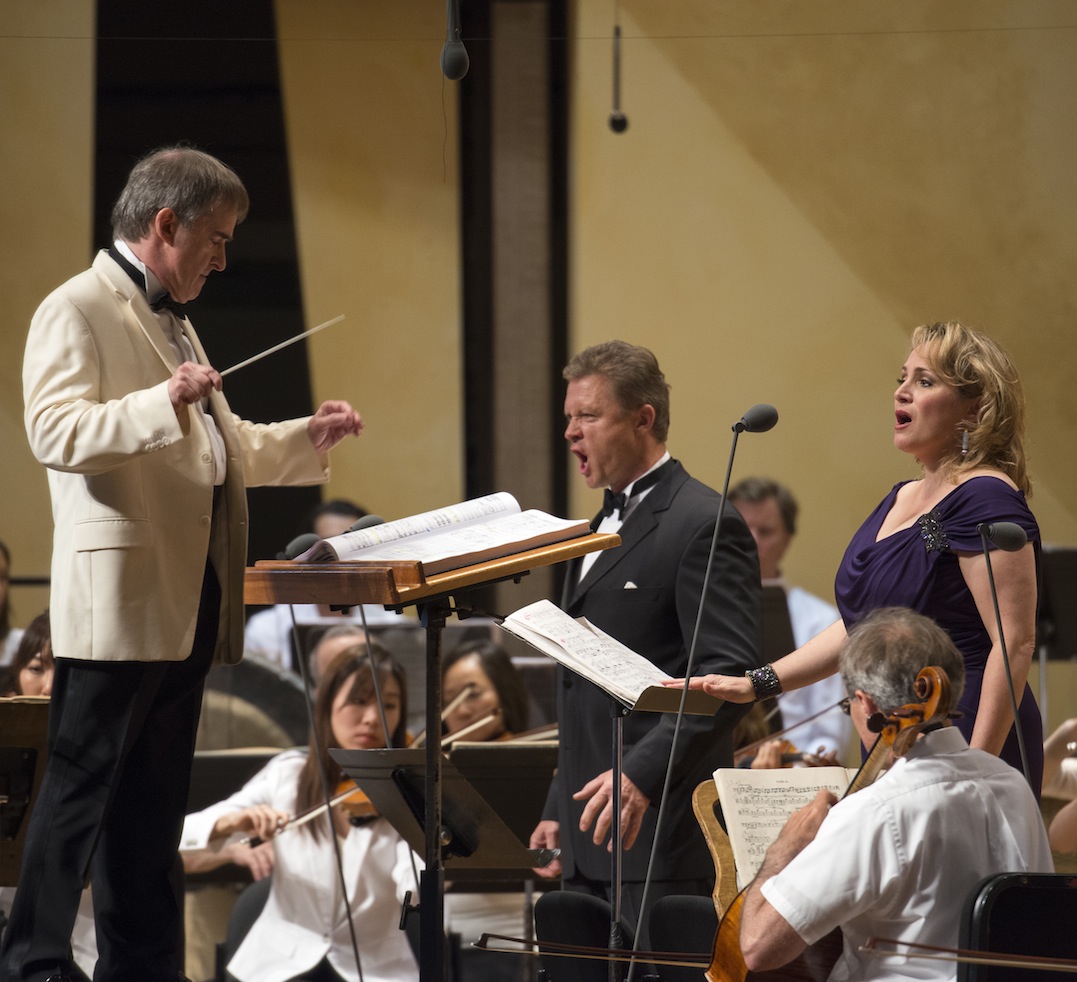Strauss’s “Salome” rocks the house at Ravinia

Lollapalooza may have been the hottest ticket in town for some Chicago music lovers on Saturday night. But it’s hard to imagine that Outkast, Spoon or Fitz and the Tantrums generated more heat than the Chicago Symphony Orchestra’s concert version of Richard Strauss’s Salome at the Ravinia Festival. Scheduled to celebrate the 150 anniversary of Strauss’s birth, the performance was a sizzling reminder of the composer’s ability to combine late 19th century romanticism with early 20th century anxiety.
Conductor James Conlon, Ravinia’s music director, assembled a strong cast, led by American soprano Patricia Racette who was singing the title role for the first time. Racette’s lyrical voice might seem an odd fit for a demanding role that’s usually the province of singers whose arsenal also includes Brunnhilde. But her instrument is big, gleaming and full of color. Ravinia’s amplification system, a necessity for its sprawling outdoor space, was on full blast and clearly ramped up Racette’s inherent power. But the blend of sound between orchestra and soloists was well-balanced, and Racette’s full-throated, satiny sound easily rode the massive orchestral waves.
She sounded fresh and confident throughout the unbroken 90-minute performance. In Salome’s horrifying final monologue her vocal line moved like a force of nature amid the tumult of Strauss’ raw-edged percussion, ominous woodwinds and sumptuous strings. Her Salome was an intriguing blend of calculating woman and willful child.
As Herod (tenor Allan Glassman) tried to renege on his vow to grant whatever she wished, as she kept demanding John the Baptist’s head. Meeting his every objection with the same, one-sentence demand, Racette embodied the calm fury of a relentless teen-aged beauty.
Scheduled to sing the Slave/First Jew, Glassman replaced German tenor Wolfgang Schmidt who was indisposed. Glassman has sung leading Strauss roles at the Metropolitan Opera, and his Herod proved a powerful foil for Racette’s Salome. Even as he pleaded for her attention, his virile, textured voice had the authority of a man used to being obeyed.
Making his Ravinia debut as John the Baptist, Latvian bass-baritone Egils Silins offered a potent mixture of visceral disgust at Herod’s lewd court and ringing confidence in his own holy, prophetic mission. His dark, resonant voice was also flexible, recoiling and attacking like a giant, angry serpent.
Distinguished German soprano Gabriele Schnaut, also making her Ravinia debut, was appropriately shrill as Herod’s wife, Herodias, finding the nice balance between overwrought shrew and affronted queen. Tenor Joseph Kaiser was touching as the innocent Narraboth, hopelessly in love with Salome. Among the opera’s smaller roles mezzo-soprano Renee Rapier as The Page and bass-baritone Craig Colclough as First Soldier/First Nazarene added emotional depth and vocal color.
From the luminous opening bars, Conlon created an urgent, driven atmosphere that blended luxurious beauty and eerie, sharp-edged horror. At least for listeners in the pavilion, not even the noisy drone of two passing helicopters could break the spell. The crack of dry percussion and crisp phrasing in the strings and woodwinds gave the famous Dance of the Seven Veils a dangerous edge. Brittle as dry kindling, it threatened to burst into sky-high flames at any moment. Like morbidly excited bystanders at a crime scene, we couldn’t tear ourselves away.
Posted in Performances





Posted Aug 04, 2014 at 2:53 pm by M. Friedman
Why is the conductor mentioned always last in reviews, as above. Maestro Conlon should be listed on the very top for his extraordinary talent and performance of conducting Strauss’s orchestral mammoth. Thank you, Maestro!